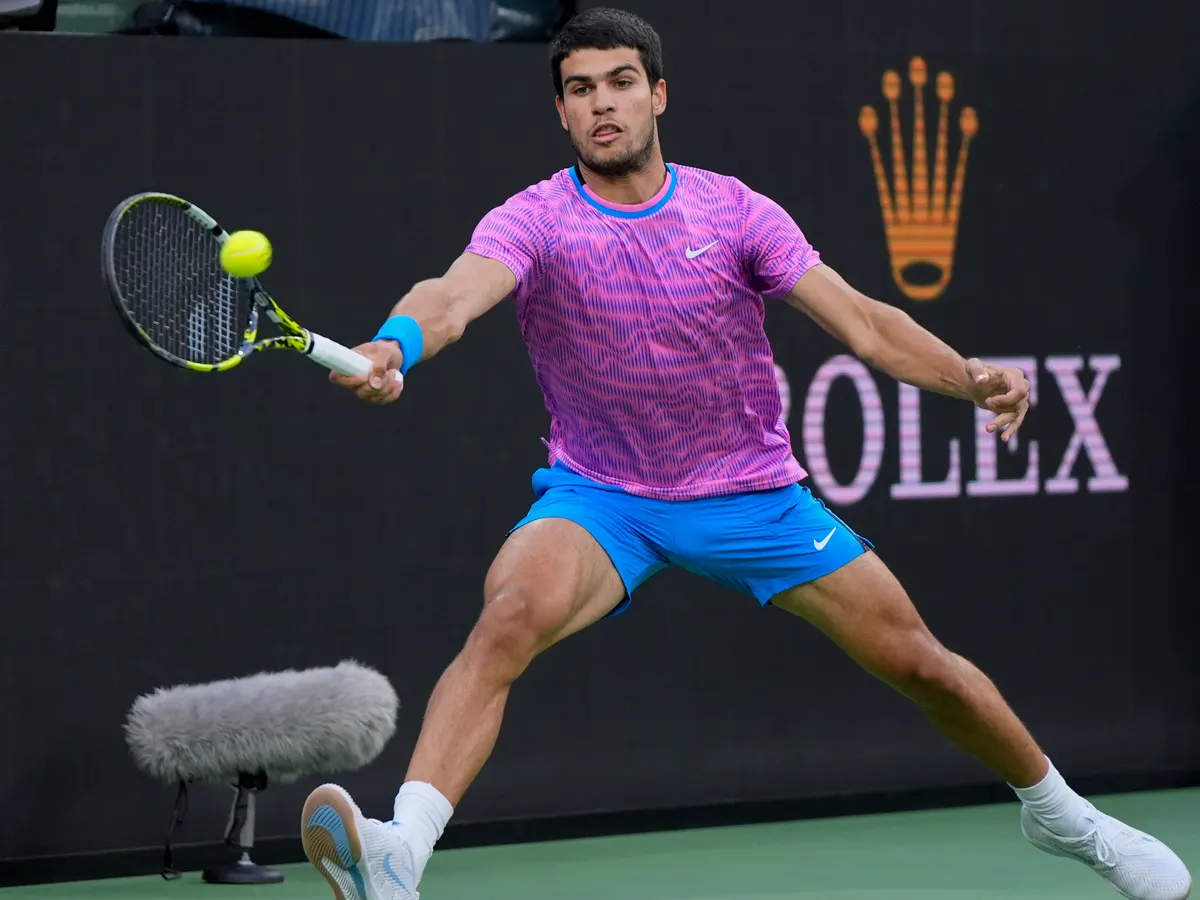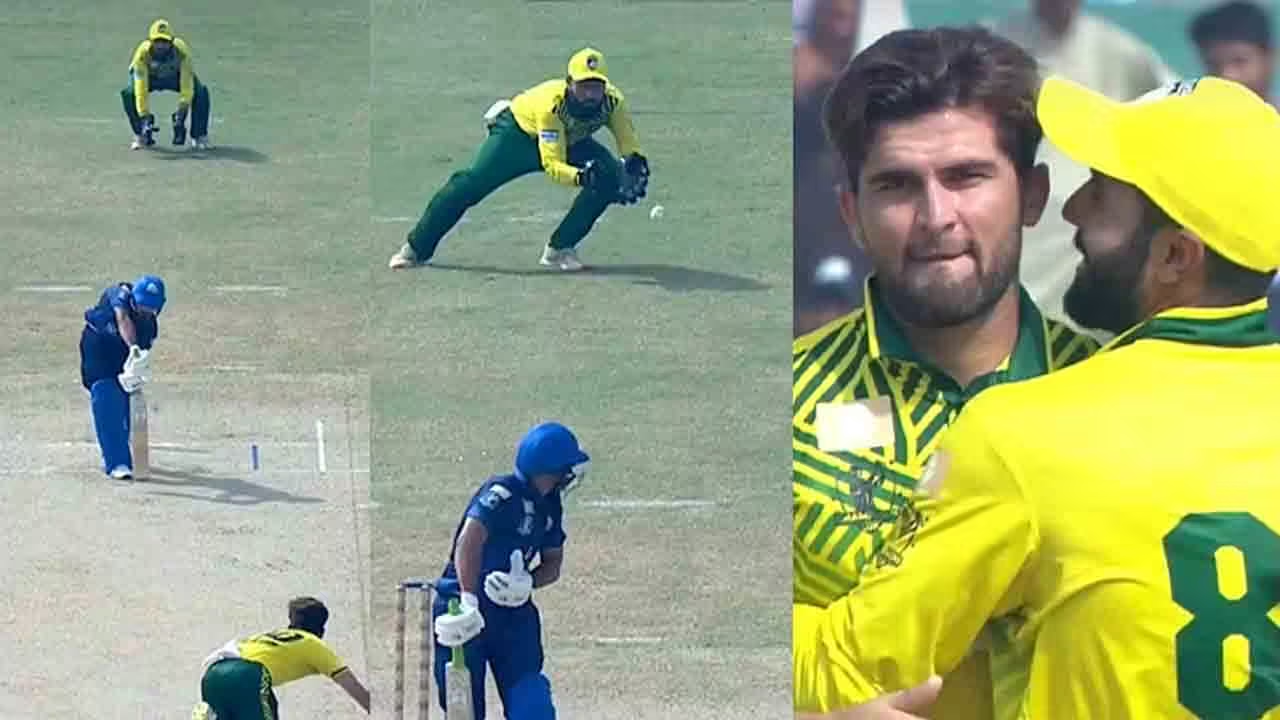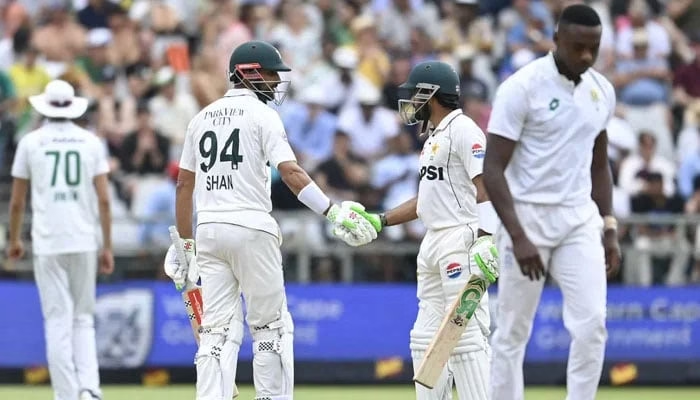The Pakistan Cricket Captaincy discussion has intensified after national team head coach Mike Hesson wrote an official letter to Pakistan Cricket Board (PCB) Chairman Mohsin Naqvi. In the letter, Hesson proposed a joint meeting of the Selection Committee and Advisory Committee to finalize the new ODI captain ahead of the upcoming series against South Africa. Chairman Naqvi has forwarded the letter to both committees, and their meeting, scheduled for October 20, is expected to make a final decision on who will lead the team in One-Day Internationals.
According to a PCB spokesperson, no official decision has yet been made regarding the ODI captaincy. However, sources indicate that a proposal to replace Mohammad Rizwan with Shaheen Shah Afridi is under serious consideration. At the same time, discussions are also ongoing about a possible return of Babar Azam to the T20 squad, adding another dimension to the evolving Pakistan Cricket Captaincy scenario.
Shaheen Afridi Emerges as a Strong Candidate for Pakistan Cricket Captaincy
Among the leading contenders for the Pakistan Cricket Captaincy, Shaheen Shah Afridi has emerged as the front-runner. Reports suggest that PCB officials have been in talks with Shaheen for several days, exploring the possibility of reinstating him as the captain for the ODI side. Shaheen, who was previously removed from the T20 leadership role after Pakistan’s 4-1 series defeat to New Zealand last year, has reportedly expressed interest in returning to leadership—provided he is given full authority and a long-term guarantee until the 2027 World Cup.
This potential reshuffle in the Pakistan Cricket Captaincy reflects the PCB’s broader strategy of stabilizing leadership ahead of major tournaments. Shaheen’s demand for autonomy indicates his desire to have greater say in team selection, strategy, and on-field decisions. This request aligns with the approach of modern-day captains who prefer strategic independence to foster consistency and accountability within the squad.
Background: Frequent Changes in Pakistan Cricket Captaincy
Over the past few years, Pakistan Cricket Captaincy has undergone several changes across all formats. Babar Azam’s leadership era saw mixed results—while he achieved success in bilateral series, Pakistan struggled in ICC tournaments. After the T20 World Cup, Babar stepped down, paving the way for Rizwan and later Shaheen to take on leadership roles in different formats. However, neither tenure has provided long-term stability.
The constant shifts in Pakistan Cricket Captaincy have sparked debates among analysts and fans, many of whom believe that consistent leadership is essential for sustained team performance. Experts argue that the frequent changes in captaincy not only impact player morale but also hinder the development of a cohesive game plan.
The Case for Shaheen Afridi as ODI Captain
Supporters of Shaheen Afridi’s return to leadership highlight his aggressive mindset, calm demeanor under pressure, and natural ability to inspire younger players. His success as a bowler and his on-field energy have made him a fan favorite, which strengthens his case for the Pakistan Cricket Captaincy.
According to sources, the PCB has conducted an internal review of team performances under different captains, and the data indicates that players perform better under captains who lead with both authority and empathy. Shaheen’s rapport with younger players and his experience in leading Lahore Qalandars in the Pakistan Super League (PSL) — where he guided them to consecutive titles — demonstrate his leadership potential.
However, critics argue that while Shaheen is a world-class bowler, leading the national side requires more than tactical brilliance. Managing pressure, maintaining fitness, and balancing personal performance with leadership responsibilities remain major challenges.
Mohammad Rizwan and Babar Azam Still in Contention
While Shaheen Afridi remains the favorite for the Pakistan Cricket Captaincy, Mohammad Rizwan and Babar Azam are still in the running. Rizwan has been appreciated for his work ethic and consistency as a wicketkeeper-batsman, but recent results have raised questions about his tactical decision-making in high-pressure situations.
Babar Azam’s name, meanwhile, continues to surface due to his experience and strong record as a batsman. Reports suggest that the PCB could consider Babar’s return to leadership, at least for the T20 squad, given his previous success in that format. This ongoing uncertainty reflects the PCB’s cautious approach, aiming to ensure that the final decision strengthens the team’s overall direction.
What Lies Ahead for Pakistan Cricket
As the October 20 meeting approaches, all eyes are on the PCB’s final decision regarding the Pakistan Cricket Captaincy. The outcome will likely shape Pakistan’s preparations for the upcoming series against South Africa and set the tone for the team’s journey toward the 2027 World Cup.
If Shaheen Afridi is confirmed as the new ODI captain, it would mark a major turning point in Pakistan’s cricket leadership, signaling a shift toward long-term planning and performance-based accountability. However, if Rizwan or Babar retains or regains the role, it will reflect a preference for experience and stability.
The Pakistan Cricket Captaincy debate underscores the importance of decisive, visionary leadership in steering the national team toward consistency and global competitiveness. With the right leader at the helm, Pakistan has the potential to reclaim its dominance on the world stage and inspire a new generation of cricketing talent.



